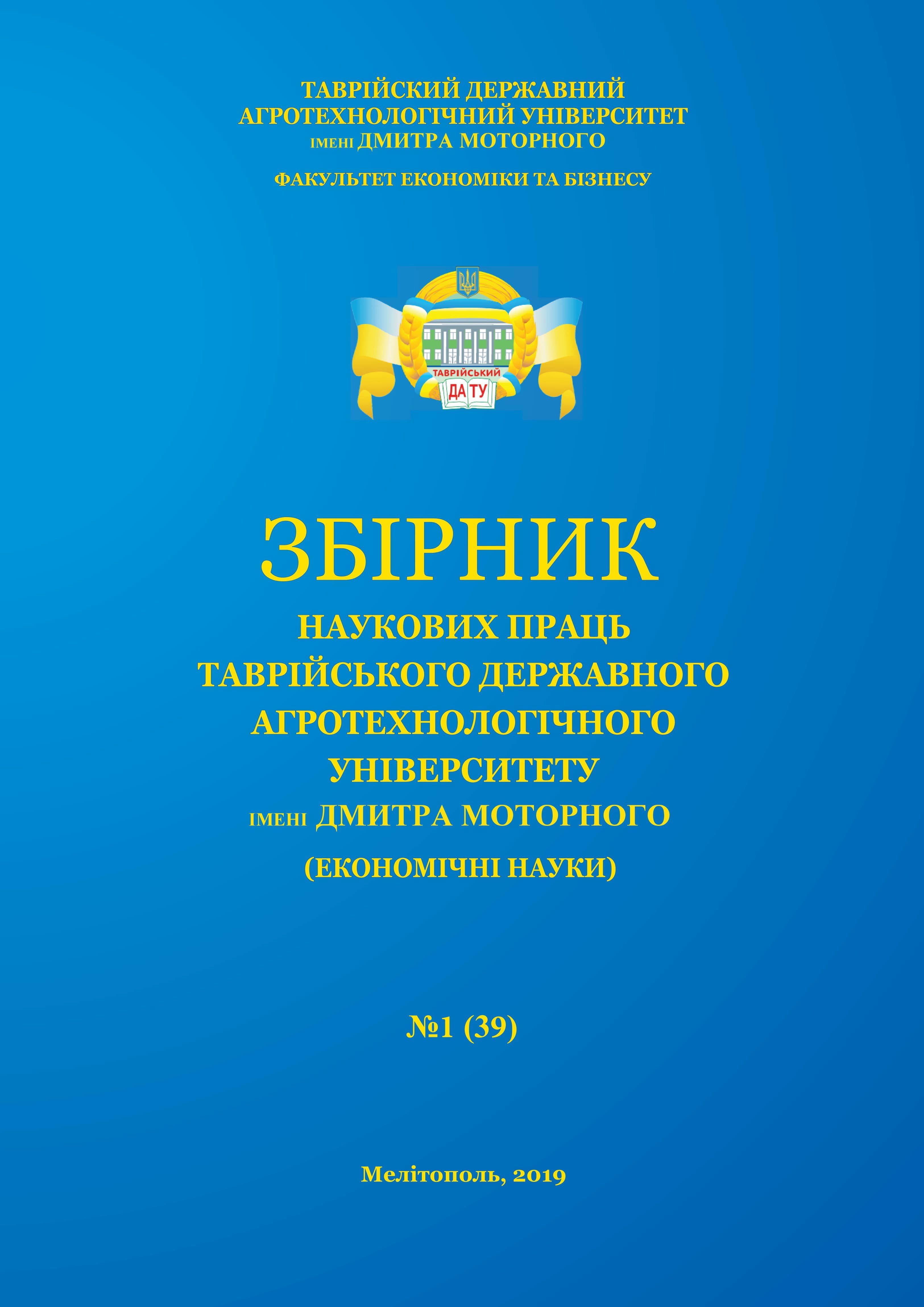ОЦІНЮВАННЯ ОПЕРАЦІЙНОЇ ЕФЕКТИВНОСТІ В КОНТЕКСТІ УДОСКОНАЛЕННЯ УПРАВЛІННЯ БІЗНЕС-ПРОЦЕСАМИ
Ключові слова:
операційна ефективність, управління бізнес-процесами, операційна стратегія підприємства, трансформація операційної моделі, «цифровізація» бізнес-процесів.
Анотація
Анотація. Розглянуто науково-методичні підходи до оцінювання операційної ефективності на засадах удосконалення управління бізнес-процесами і впровадження цифрових технологій на підприємстві. Наголошено, що сучасним підприємствам необхідно підвищити рівень операційної ефективності та удосконалити управління бізнес-процесами за рахунок оптимізації постачань, трансформації ключових функцій виробничо-збутового ланцюгу та підвищення результативності всього бізнес-циклу. Запровадження цифрових технологій призведе до зростання потенціалу операційної ефективностіі реалізації операційної стратегії підприємства.
Посилання
1. Никифорчин М.Д.Суть та основні поняття операційної ефективності в діяльності підприємства / М.Д. Никифорчин // Науковий вісник Херсонського державного університету. – 2013. – Випуск 3. – С. 88-92.
2. Соолятте А.Ю. Разработка теоретической концепции оценки и повышения операционной эффективности промышленного предприятия/ А.Ю.Соолятте, А.Н. Шмелєва// Веккачества. – 2012. - №4. – 36 c.
3. Ситник Г.В., Архіпов Н.М.Система управління ефективністю операційної діяльності підприємства / Г.В. Ситник, Н.М. Архіпов // Проблеми економіки, Секція: Економіка та управління підприємствами. – 2018. – №1 (35), – С. 223-230.
4. Зайцева О.І. Формування системи управління операційною ефективністю підприємства / О.І. Зайцева// Управління персоналом в умовах знаннєвої економіки: міжнародна колективна монографія / За заг. ред. д.е.н. Г.Г. Савіної. – Херсон, ХНТУ МОН України, Вид-во ПП Вишемирський В.С., 2019. – 135 с. – С.55-72.
5. Зайцева О.І., Жосан Г.В. Впровадження соціально-етичного маркетингу в систему адаптивного управління підприємствами в умовах усвідомленого споживання / О.І. Зайцева, Г.В. Жосан // Науковий вісник ужгородського університету. – Серія «Економіка». – 2018. – Вип. 1(51). – С. 74-78.
6. Зайцева О.І., Жосан Г.В., Бетіна В.О. Стратегічна адаптація підприємства й аналіз методичних підходів до її оцінки в контексті інтеграції України до Європейського Союзу / О.І. Зайцева, Г.В. Жосан, В.О. Бетіна // Науковий журнал «Бізнес-інформ». – №3 (482). – 2018. – С. 348-354.
7. Н.М. Краус, О.П. Голобородько,К.М. Краус. Цифрова економіка: тренди та перспективи авангардного характеру розвитку / Краус Н.М., Голобородько О.П., Краус К.М. // Електронне наукове фахове видання «Ефективна економіка». – 2018. – №1.[Електронний ресурс]. – Режим доступу: www.economy.nayka.com.ua.
8. Burkaltseva, D. D., Kosten, D. G. and Vorobyov, Yu. N. (2017), “Algorithm for the implementation of the program of “digital economy”, Zbirka dopovidei na Mizhnarodnii naukovo-praktychnii konferentsii [Conference Proceedings of the International Economic Conference], Innovatsionnye klastery v tsifrovoy ekonomike: teoriya i praktika [Innovative clusters indigitaleconomy: theory and practice], PolytechnicUniversity, St. Petersburg, Russian, pp. 141–147.
9. Kraus, N. M., and Kraus, K. M. (2017), “Innovative scoreboard of Ukraine”, SkhidnaYevropa: ekonomika, biznes ta upravlinnia, [Online], availableat: http://www.easterneurope-ebm.in.ua/6-2017-ukr (Accessed 27 Jun 2017).
10. Kryvoruchko, O. S., Kraus, N. M., and Kraus, K. M. (2017), “Innovative portrait” of the European economic space”, Infrastrukturapynku, [Online], availableat: http://market-infr.od.ua/uk/3-2017 (Accessed 28 May 2017).
11. Kryvoruchko, O. S., Kraus, N. M., and Kraus, K. M. (2017), “Innovative landscape” in thecoordinates of the worldeconomy”, Hlobalnitanashionalniproblemekonomiky, [Online], availableat: http://www.global-national.in.ua/issuje16-2017 (Accessed 28 Apr 2017).
12. Kupriyanovskiy, V. P., Dobrynin, A. P., Sinyagov, S. A., and Namiot, D. E. (2017), “Anintegralmodel of transformation in digitaleconomy – howtobecomedigitalleader”, International Journal of OpenInformation Technologies,vol. 5, no. 1, 26–33.
2. Соолятте А.Ю. Разработка теоретической концепции оценки и повышения операционной эффективности промышленного предприятия/ А.Ю.Соолятте, А.Н. Шмелєва// Веккачества. – 2012. - №4. – 36 c.
3. Ситник Г.В., Архіпов Н.М.Система управління ефективністю операційної діяльності підприємства / Г.В. Ситник, Н.М. Архіпов // Проблеми економіки, Секція: Економіка та управління підприємствами. – 2018. – №1 (35), – С. 223-230.
4. Зайцева О.І. Формування системи управління операційною ефективністю підприємства / О.І. Зайцева// Управління персоналом в умовах знаннєвої економіки: міжнародна колективна монографія / За заг. ред. д.е.н. Г.Г. Савіної. – Херсон, ХНТУ МОН України, Вид-во ПП Вишемирський В.С., 2019. – 135 с. – С.55-72.
5. Зайцева О.І., Жосан Г.В. Впровадження соціально-етичного маркетингу в систему адаптивного управління підприємствами в умовах усвідомленого споживання / О.І. Зайцева, Г.В. Жосан // Науковий вісник ужгородського університету. – Серія «Економіка». – 2018. – Вип. 1(51). – С. 74-78.
6. Зайцева О.І., Жосан Г.В., Бетіна В.О. Стратегічна адаптація підприємства й аналіз методичних підходів до її оцінки в контексті інтеграції України до Європейського Союзу / О.І. Зайцева, Г.В. Жосан, В.О. Бетіна // Науковий журнал «Бізнес-інформ». – №3 (482). – 2018. – С. 348-354.
7. Н.М. Краус, О.П. Голобородько,К.М. Краус. Цифрова економіка: тренди та перспективи авангардного характеру розвитку / Краус Н.М., Голобородько О.П., Краус К.М. // Електронне наукове фахове видання «Ефективна економіка». – 2018. – №1.[Електронний ресурс]. – Режим доступу: www.economy.nayka.com.ua.
8. Burkaltseva, D. D., Kosten, D. G. and Vorobyov, Yu. N. (2017), “Algorithm for the implementation of the program of “digital economy”, Zbirka dopovidei na Mizhnarodnii naukovo-praktychnii konferentsii [Conference Proceedings of the International Economic Conference], Innovatsionnye klastery v tsifrovoy ekonomike: teoriya i praktika [Innovative clusters indigitaleconomy: theory and practice], PolytechnicUniversity, St. Petersburg, Russian, pp. 141–147.
9. Kraus, N. M., and Kraus, K. M. (2017), “Innovative scoreboard of Ukraine”, SkhidnaYevropa: ekonomika, biznes ta upravlinnia, [Online], availableat: http://www.easterneurope-ebm.in.ua/6-2017-ukr (Accessed 27 Jun 2017).
10. Kryvoruchko, O. S., Kraus, N. M., and Kraus, K. M. (2017), “Innovative portrait” of the European economic space”, Infrastrukturapynku, [Online], availableat: http://market-infr.od.ua/uk/3-2017 (Accessed 28 May 2017).
11. Kryvoruchko, O. S., Kraus, N. M., and Kraus, K. M. (2017), “Innovative landscape” in thecoordinates of the worldeconomy”, Hlobalnitanashionalniproblemekonomiky, [Online], availableat: http://www.global-national.in.ua/issuje16-2017 (Accessed 28 Apr 2017).
12. Kupriyanovskiy, V. P., Dobrynin, A. P., Sinyagov, S. A., and Namiot, D. E. (2017), “Anintegralmodel of transformation in digitaleconomy – howtobecomedigitalleader”, International Journal of OpenInformation Technologies,vol. 5, no. 1, 26–33.
Опубліковано
2019-09-11

